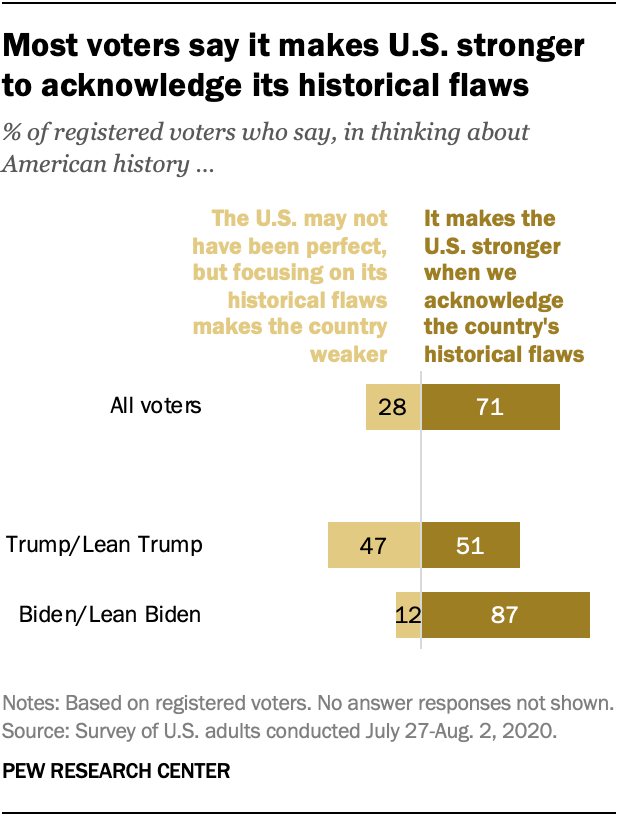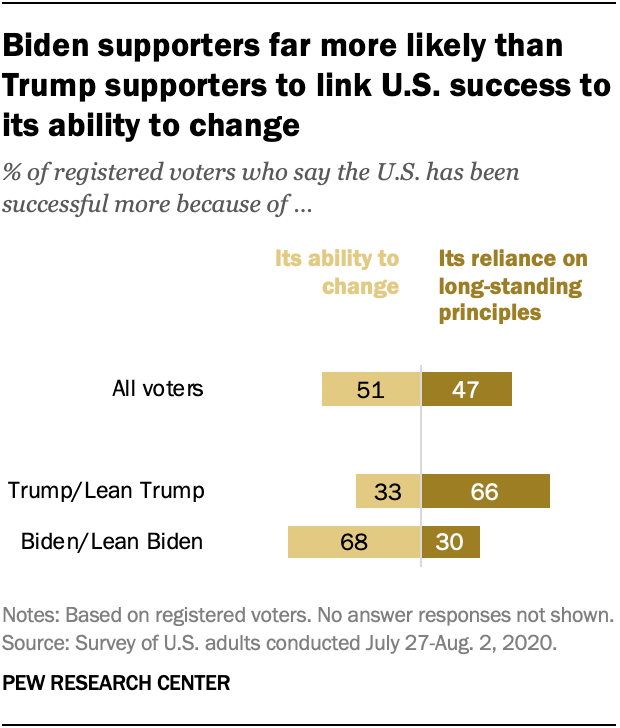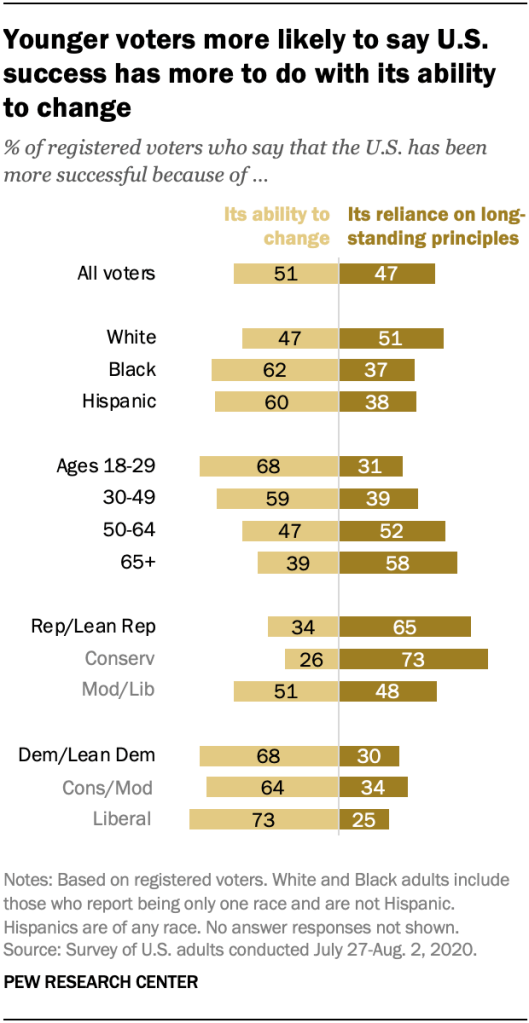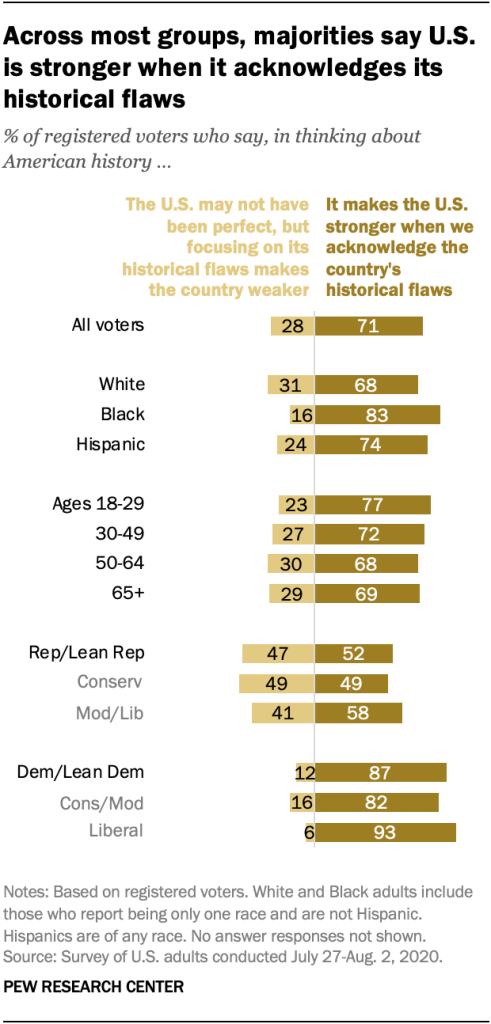Supporters of Donald Trump and Joe Biden do not just disagree over major national issues and the country’s direction. They also differ over the factors behind U.S. success and the merits of acknowledging the nation’s historical flaws.
A large majority of registered voters (71%) say that “it makes the U.S. stronger when we acknowledge the country’s historical flaws.” About three-in-ten voters (28%) say “the U.S. may not have been perfect, but focusing on its historical flaws makes the country weaker.”
An overwhelming majority of registered voters who support Biden (87%) say that acknowledging the country’s historical flaws makes the U.S. stronger. Trump supporters are evenly divided: Almost half (47%) say focusing on historical flaws makes the country weaker, while 51% say that acknowledging flaws makes the country stronger.
Pew Research Center asked these questions on a recent survey to understand Americans’ views of the nation. For this analysis, we conducted an online survey of 11,001 U.S. adults, including 9,114 registered voters, between July 27 and Aug. 2, 2020.
Everyone who took part is a member of the Center’s American Trends Panel (ATP), an online survey panel that is recruited through national, random sampling of residential addresses. This way nearly all U.S. adults have a chance of selection. The survey is weighted to be representative of the U.S. adult population by gender, race, ethnicity, partisan affiliation, education and other categories. Read more about the ATP’s methodology. Here are the questions used for this report, along with responses, and its methodology.
Overall, voters are divided on the question of whether U.S. success has been more because of its ability to change (51% say this) or because of its reliance on long-standing principles (47%).
The gap between Trump and Biden supporters is about as wide on this question: By more than two-to-one (68% to 30%), Biden supporters credit U.S. success to its ability to change. By a fairly similar margin (66% to 33%), Trump voters hold the opposing view, that the U.S. owes its success more to reliance on long-standing principles.
There are demographic differences in opinions on both of these questions, but they are much wider when it comes to views of why the U.S. has been successful.
The age divides are substantial: 68% of registered voters ages 18 to 29 say the U.S. is successful more because of its ability to change. The share who express this view declines across each older age group — just 39% of those ages 65 and older associate U.S. success more with the country’s ability to change, while 58% attribute it more to the nation’s reliance on long-standing principles.
White voters are divided over whether an ability to change (47%) or a reliance on long-standing principles (51%) has more to do with the nation’s success. However, majorities of Black (62%) and Hispanic (60%) voters say the country’s ability to change has more to do with its success.
There also are differences in views within both parties by ideology. Roughly three-quarters of conservative Republican voters (73%) say the U.S. has been successful more because of its reliance on long-standing principles, compared with 48% of moderate and liberal Republicans who say this.
Liberal Democratic voters (73%) are more likely to say the ability to change has more to do with the country’s success than conservative and moderate Democrats (64%), though this is the majority view among those in both groups.
Majorities across nearly all major demographic groups say it makes the country stronger to acknowledge its historical flaws.
Nearly two-thirds of White voters (68%) say acknowledging the United States’ historical flaws makes the country stronger. Larger majorities of Black (83%) and Hispanic (74%) voters say the same.
And while there are modest age differences in these views, roughly two-thirds or more voters in all age categories say that it makes the U.S. stronger to acknowledge historical flaws.
Note: Here are the questions used for this report, along with responses, and its methodology.




